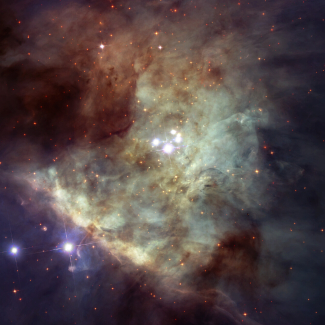
A French team has improved the measurement of a fundamental physical constant
The validation and application of theories in physics require the measurement of universal values known as fundamental constants. A team of French researchers1 has just conducted the most accurate measurement to date of the fine-structure constant, which characterizes the strength of interaction between light and charged elementary particles, such as electrons. This value has just been determined with an accuracy of 11 significant digits; improving the precision of the previous measurement by a factor of 3.2 The scientists achieved such precision by enhancing their experimental set-up, in an effort to reduce inaccuracies and to control effects that can create perturbations of the measurement. The experiment involves cold rubidium atoms with a temperature approaching absolute zero. When they absorb photons, these atoms recoil at a velocity that depends on their mass. The highly precise measurement of this phenomenon helps to improve the knowledge of the fine-structure constant. These results, which will appear in Nature on 3 December, open new prospects for testing the Standard Model’s theoretical predictions.3 The use of more accurate constants can help to answer fundamental questions, such as the origin of dark matter in the Universe.

© Pierre Cladé, Saïda Guellati-Khélifa et Tatsumi Aoyama
- 1The physicists are working at the Kastler Brossel Laboratory (CNRS/Sorbonne Université/ENS Paris/Collège de France) and the National Conservatory of Arts and Crafts (CNAM).
- 2The new value of the fine-structure constant is 1/α = 137.035999206 (with a relative precision of 81 parts-per-trillion).
- 3The Standard Model of particle physics studies the elementary components of matter.
Determination of the fine-structure constant with 81 parts-per-trillion accuracy, Léo Morel, Zhibin Yao, Pierre Cladé, Saïda Guellati-Khélifa, Nature, December 2 2020. DOI:10.1038/s41586-020-2964-7


